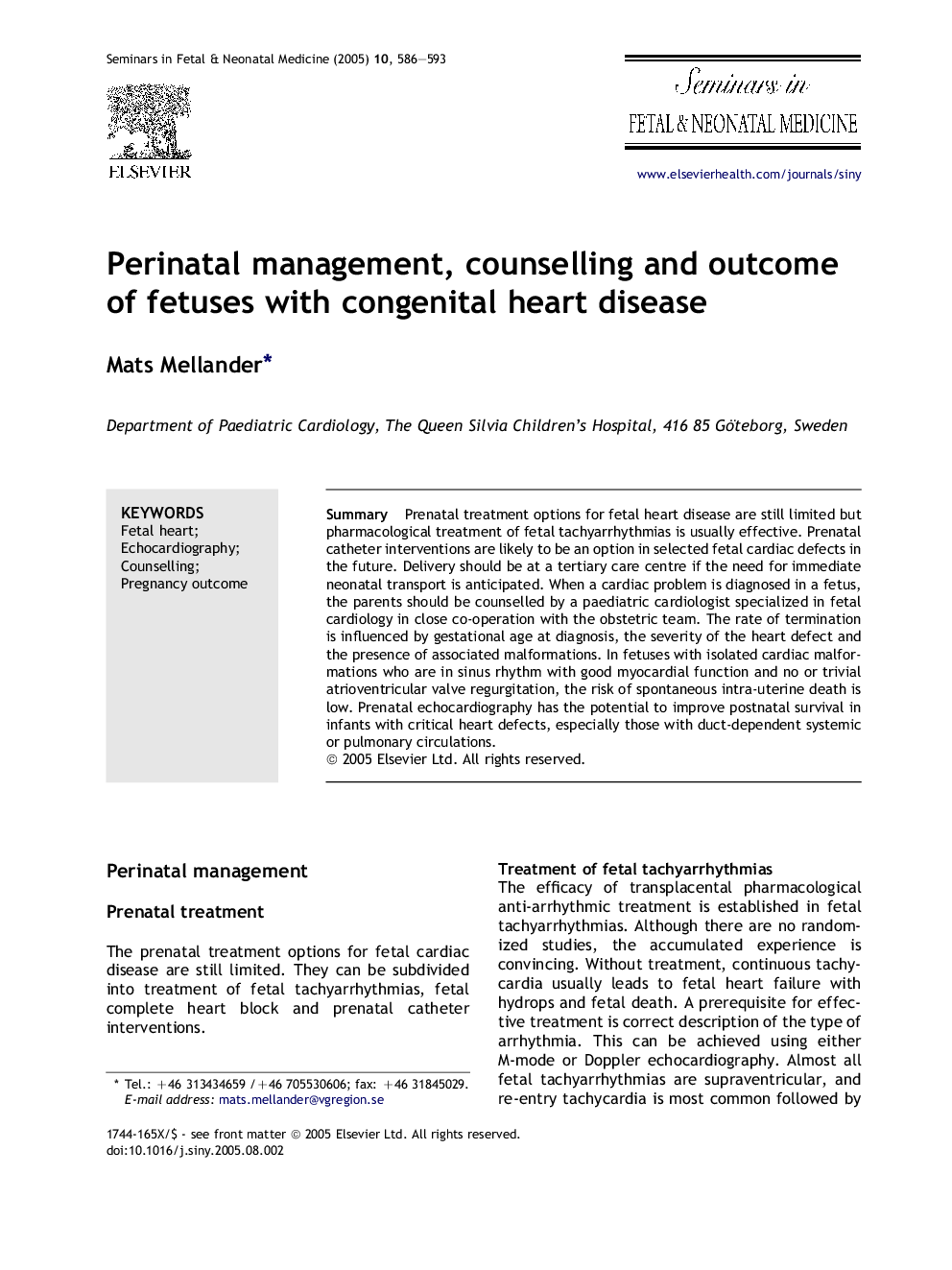| Article ID | Journal | Published Year | Pages | File Type |
|---|---|---|---|---|
| 9335998 | Seminars in Fetal and Neonatal Medicine | 2005 | 8 Pages |
Abstract
Prenatal treatment options for fetal heart disease are still limited but pharmacological treatment of fetal tachyarrhythmias is usually effective. Prenatal catheter interventions are likely to be an option in selected fetal cardiac defects in the future. Delivery should be at a tertiary care centre if the need for immediate neonatal transport is anticipated. When a cardiac problem is diagnosed in a fetus, the parents should be counselled by a paediatric cardiologist specialized in fetal cardiology in close co-operation with the obstetric team. The rate of termination is influenced by gestational age at diagnosis, the severity of the heart defect and the presence of associated malformations. In fetuses with isolated cardiac malformations who are in sinus rhythm with good myocardial function and no or trivial atrioventricular valve regurgitation, the risk of spontaneous intra-uterine death is low. Prenatal echocardiography has the potential to improve postnatal survival in infants with critical heart defects, especially those with duct-dependent systemic or pulmonary circulations.
Related Topics
Health Sciences
Medicine and Dentistry
Obstetrics, Gynecology and Women's Health
Authors
Mats Mellander,
